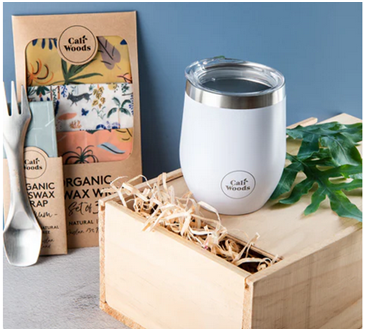In our ever-growing concern for the ecological repercussions of human activities, the decisions we make in our daily lives can significantly impact our path toward a more sustainable future. One particular area where individuals can make a positive contribution is in the realm of gift-giving. As society grapples with consumer-driven practices, there is a rising demand for gifts that embrace eco-friendly principles. This article explores the importance of such gifts, their environmental impact, and the diverse creative options available.
The Environmental Impact of Conventional Gifts
Traditional gift-giving often involves the exchange of items that contribute to environmental degradation. From excessive packaging to the carbon footprint associated with manufacturing and transportation, the lifecycle of conventional gifts can have a substantial negative effect on the planet. Plastic waste, deforestation, and pollution are just a few consequences that stem from the production and disposal of non-sustainable gifts.
Embracing Eco-Friendly Alternatives
In contrast, eco-friendly gifts aim to minimize their environmental impact throughout their lifecycle. These gifts are often crafted from sustainable materials, are biodegradable or recyclable, and prioritize ethical production practices. The increasing popularity of eco friendly gifts mirrors a broader shift in consumer awareness toward a more sustainable and responsible lifestyle.
Sustainable Materials and Ethical Production
Eco-friendly gifts encompass a variety of sustainable materials, such as bamboo, recycled paper, organic cotton, and reclaimed wood. These materials are chosen for their minimal environmental impact and renewable properties. Moreover, the production processes of eco-friendly gifts often prioritize fair labor practices, ensuring that the individuals involved in manufacturing are treated ethically and compensated fairly.
Mitigating Plastic Waste
One of the primary contributors to environmental pollution is plastic waste. Eco-friendly gifts seek to minimize this impact by either eliminating plastic from their packaging or utilizing biodegradable alternatives. From reusable shopping bags to stainless steel straws, these gifts encourage a reduction in single-use plastic consumption, aiding the global efforts to combat the plastic crisis.
Promoting a Circular Economy
Eco-friendly gifts contribute to the concept of a circular economy, where products are designed to be reused, refurbished, and recycled rather than disposed of after a single use. This approach minimizes waste and conserves valuable resources. Whether it’s a durable water bottle, a reusable coffee cup, or a set of cloth napkins, these gifts foster a mindset shift toward sustainability.
Supporting Local Artisans
Another aspect of eco-friendly gift-giving involves supporting local artisans and craftsmen. Purchasing handmade, locally-produced items contributes to the livelihoods of skilled individuals within communities. This not only reduces the carbon footprint associated with long-distance transportation but also nurtures a sense of community and connection.
The Power of Thoughtful Consumption
Choosing eco-friendly gifts is a deliberate decision to prioritize thoughtfulness and sustainability over mass-produced, environmentally harmful alternatives. It signifies a commitment to reducing one’s ecological footprint and making choices that align with the values of environmental responsibility. Moreover, eco-friendly gifts can catalyze conversations about the importance of sustainability, influencing others to adopt more conscious consumer habits.
In conclusion, the surge in popularity of eco-friendly gifts represents a positive shift towards a more sustainable and environmentally conscious society. By choosing gifts made from sustainable materials, supporting local artisans, and promoting a circular economy, individuals can contribute to the global effort to combat environmental degradation. Thoughtful consumption is not just a trend; it is a fundamental step towards a more harmonious relationship between humanity and the planet. As we continue to navigate the challenges of a consumer-driven world, let us embrace the power of eco-friendly gifts and pave the way for a brighter, more sustainable future.












